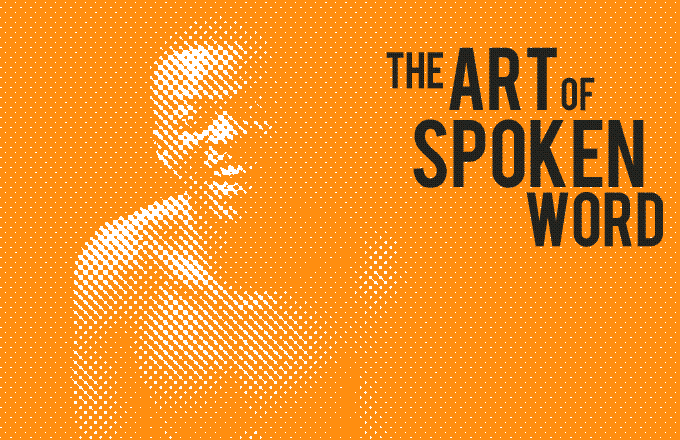
What is the art of spoken word? Well, if you ask a thousand different poets, you might get a thousand different answers; so here is mine. At its root, I believe, the art of spoken word is the ability to be emotionally naked on stage: to reveal parts of yourself that might be uncomfortable to yourself and others. You might call this a form of "strength through vulnerability", in that the bravery to be honest about your own struggles can enable countless others to confront the most difficult areas of their own lives.
It's this quality which makes spoken word special, beyond even the skill that it takes to tell a powerful story. Of course you need craft to be a leading poet—many of them will tell of you of the countless books and albums they have devoured, of the hours they have spent reading Dante, Pablo Neruda and Sylvia Plath, or listening to Lauryn Hill or Nas. But there's another reason why poets such as, say, Hollie McNish, George The Poet and Kate Tempest are making such waves at the moment.
That reason is that they, through courageously telling stories unique to them, have developed the most important thing for any artist: a voice. To find that voice takes an elusive blend of patience, practice, self-reflection and self-exposure. This is why, as a poet, the hardest story to tell will very often be your best. The toughest tale I ever wrote, "Passport", was about my father, who died in a war in Uganda when I was just four years old; as a result, it is the most satisfying thing that I have done in poetry.
It is a field where all storytellers are welcome.
There is a rich tradition of poets who, once they have found their voice, have set their work to music. In the US, many will point to Gil Scott-Heron, Ursula Rucker, Jill Scott and Saul Williams. In the UK, they can point to John Cooper-Clarke, to Floetry, Charlie Dark, and Roger Robinson. More recently, of course, there is Hollie, Kate and George, as well as Joshua Idehen and Scroobius Pip. In making my own musical efforts, I am both encouraged by their progress and ever more determined to deal with the social issues that are most important to me.
The subject closest to my heart at the moment is that of migration, and this has inspired my new EP, The Nomadic, with Paper Tiger's Greg Surmacz. My parents were forced to leave Uganda by Idi Amin's murderous regime, with one of my family members having to flee a firing-squad. Years later, like them, I too left the country of my birth; but, unlike them, I left in far less dramatic circumstances. My wish was simply to be somewhere where I felt that I belonged, and the UK, with its disturbing drift into xenophobic waters, did not feel like that place anymore. Motivated by that feeling of rootlessness, I wrote "Ring The Bells", the EP's lead single, which is I suppose a hymn to the hope of a happier land.
Why do I find the art of spoken word so compelling? Well, because it is such a fluid field that there's room for you, whether you have a rapper's 4/4 flow or more conversational style. Because it is a field where all storytellers are welcome: whether they be poor, disabled, female, people of colour, those traditionally marginalised by what can still be an oppressive mainstream culture. That is the beauty of spoken word. And that is why it is a world to which I am proud to belong.
Musa Okwonga is a poet, journalist, and musician based in Berlin. Find him on Twitter @Okwonga.
